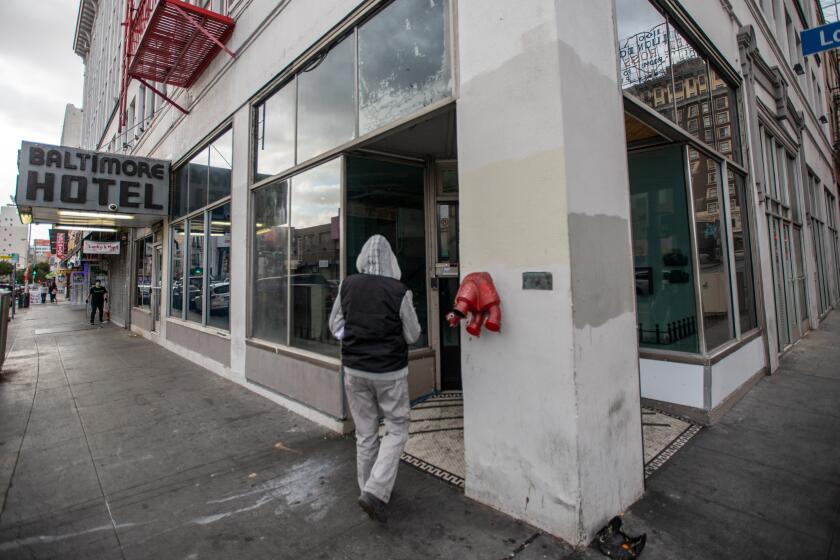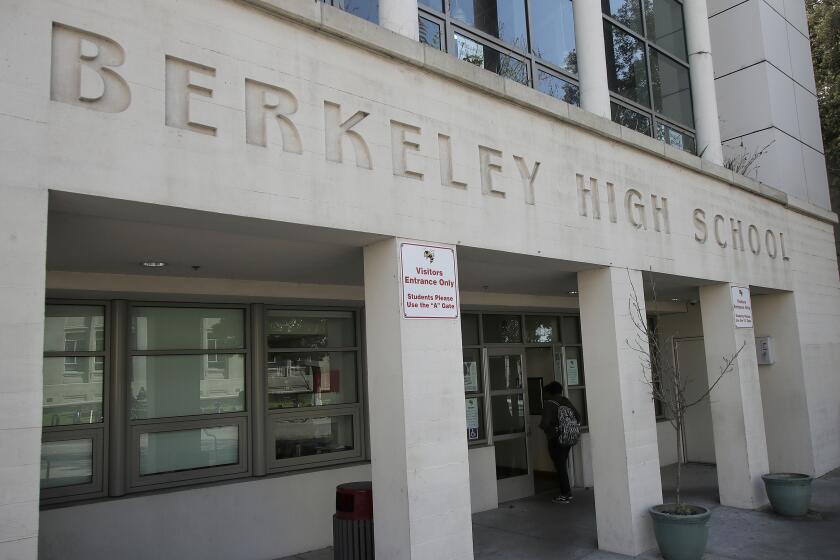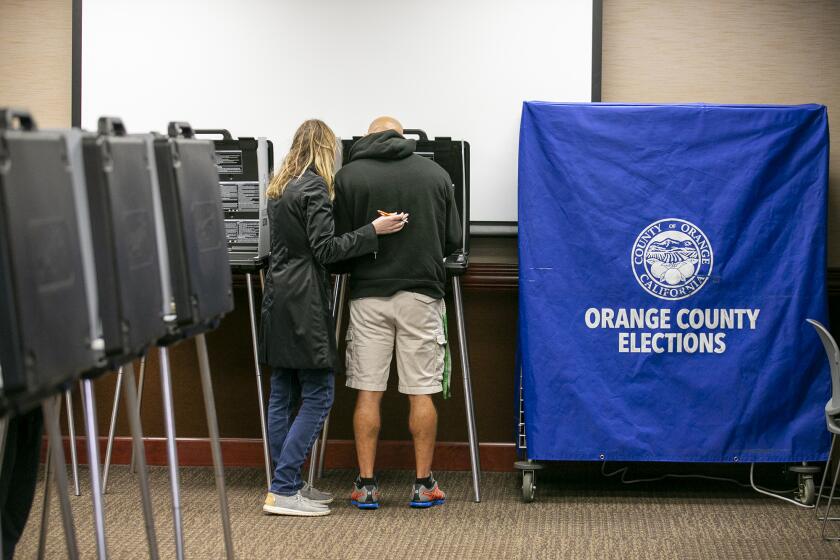Care providers in crisis as budget impasse drags on
Fallout from the state’s longest budget standoff on record is rippling through California, with scores of healthcare providers on the brink of bankruptcy, schools and community colleges scaling back offerings and contractors struggling to hang on.
If there is no spending plan by the end of the month, the state will owe $12 billion to government service providers who by law cannot be paid in the absence of a budget. Many in the Capitol predict the stalemate could easily last that long, and service providers up and down the state are warning that they will go under if it does.
“It is crazy what they are doing,” said Betty Ann Honda, operations manager at Care Van Inc. in Glendale, which every week transports 200 patients with severe kidney problems to dialysis appointments. “They are putting people in a position of having to deny patients services they need to live.”
Care Van will use up its last line of credit to make its payroll this week, Honda said; after that, the company will be out of money. Officials there are hitting up friends and relatives for personal loans to help keep the 30-year-old business afloat.
Honda says some competitors have already closed their doors as a result of the impasse, leaving Care Van to absorb 50 new patients. She is astounded by talk of the impasse dragging into November.
“We can’t wait that long,” she said. “We’re desperate.”
Thousands of low-income parents who rely on the state to help cover child care expenses learned this week that they were being cut off. Child Care Resources Center, a north Los Angeles County nonprofit that helps area parents tap the subsidies, said it can no longer afford to float the costs itself.
The nonprofit has borrowed more than $4 million to keep the payments going so far -- absorbing $40,000 in interest charges -- and its financial resources are tapped out, said spokeswoman Stacy Miller.
“The funds simply don’t exist until a budget is passed,” she said.
In Rancho Cucamonga, Gail Horrigan is scraping to find cash to keep a company open that provides around-the-clock care for 108 developmentally disabled adults.
“We are not paying mortgages, we are not paying vendors,” she said. Lines of credit have been tapped, as have family and friends. Southern California Edison is threatening to shut off the company’s electricity.
If the impasse goes on another month or more, “I don’t know what we will do,” she said. “We have no lifeline.”
A Republican proposal to release emergency funds to service providers was rejected Wednesday by Gov. Arnold Schwarzenegger as fiscally irresponsible. He said it would precipitate a cash crisis, emptying state coffers of billions of dollars at a time when reserves are low and the usual bridge loans can’t be accessed because there is no spending plan.
And he lashed out at lawmakers, some of whom have attended the national party conventions out of state.
“You should not go anywhere until the budget is done,” Schwarzenegger said.
Some Californians haven’t had the option of staying at their jobs. Ninety employees of Phoenix Houses of California, a nonprofit that provides drug treatment programs, were suddenly out of work most of last month, after the state halted treatment in the prisons.
“Many of them had been employees for more than 10 years,” said executive director Winnie Wechsler. The state ultimately reinstated the program, but not before the nonprofit spent $140,000 on temporary health insurance for the displaced employees. The state will not reimburse the company; the cost will be paid from donations.
“To lose that amount of money is crippling for us,” Wechsler said.
At St. John’s Well Child and Family Center, which operates 11 health clinics in South Los Angeles, officials are struggling to absorb patients turned away by smaller providers. The network of clinics is short some medications and supplies, and plans to open a new facility to treat diabetics and others with chronic illnesses have been put off.
Patients fear St. John’s may soon start turning them away too. “We don’t have anywhere else to go or money to pay,” said Erasmo Ortega, a 40-year-old taxi driver.
Ortega relies on the network’s Dr. Louis Frayser Community Clinic on South Hoover Street for prescriptions for diabetes and high blood pressure. On Wednesday, he took his 10-year-old son Manuel, one of six children, to the clinic to be treated for a fever.
The pair showed up more than half an hour before the clinic opened at 8:30 a.m. Since the budget impasse began more than two months ago, the morning line outside the clinic has grown from about 45 to 75 people, staff members said.
Educators, meanwhile, are delaying new programs, textbook purchases and construction projects; money for them is being withheld by the state. Some districts have been able to dip into reserves, but such moves can be risky. A school can move forward with a costly new program only to find, once the state passes a budget, that there is no money for it.
“Districts can’t commit to staffing,” said Ken Shelton, chief business officer at the Los Angeles County Office of Education, which helps school districts and community colleges manage their finances. “You don’t know whether programs are going to be funded or not.”
At the state’s community colleges, the situation is dire. Some will be out of money by month’s end. They are relying on counties for cash, but some counties are having their own financial problems and may be unable to do so. Short-term bridge loans available in the past are much harder to come by this year, as a result of the ongoing national credit crunch.
“These are uncharted waters,” said Scott Lay, president of the Community College League of California. “The cash just isn’t there. . . . We are starting to hold our breath.”
Robert Nydam is past that point. The executive director of Daybreak Care Center in Sun Valley, which provides care for 54 developmentally disabled children and adults, says he is out of cash and out of options.
“I will not have money for my next payroll,” he said. “Unless magic money comes out of the air, I will have to close my doors, and the state will take custody of my clients.”
--
molly.hennessy-fiske@latimes.com
Halper reported from Sacramento, Hennessy-Fiske from Los Angeles.








